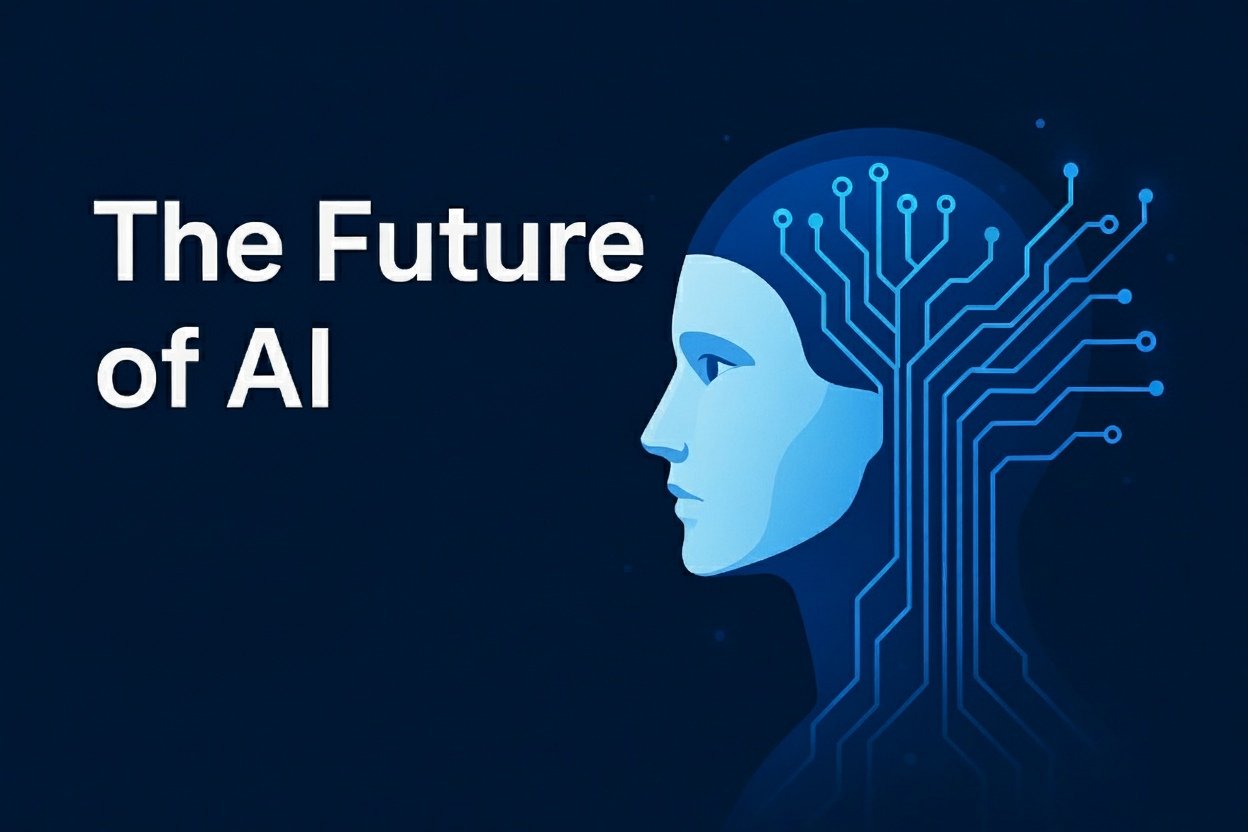Introduction
Artificial Intelligence (AI) is no longer a faraway dream — it’s the engine powering today’s biggest technological revolutions. From self-driving cars to virtual assistants and intelligent automation, AI has become an inseparable part of modern life.
But what’s next? What does the future of artificial intelligence hold for humanity, businesses, and society? Let’s explore the next chapter of AI evolution — its opportunities, challenges, and the groundbreaking innovations that await us.
🚀 1. Smarter and More Human-Like AI
The next generation of AI will not just understand data — it will understand people.
AI systems are becoming more context-aware and emotionally intelligent, capable of interpreting tone, body language, and emotions. This “human-centered AI” could transform how we communicate with machines — making them more empathetic, natural, and helpful.
Examples of Human-Like AI
- Healthcare: AI therapists that provide emotional support and track mental well-being.
- Education: Virtual tutors that understand a student’s mood and learning pace.
- Customer Service: Chatbots that respond with empathy, not just information.
🏭 2. AI Transforming Global Industries
- Healthcare: AI-driven diagnostics and precision medicine.
- Finance: Smarter fraud detection and automated investment strategies.
- Manufacturing: Predictive maintenance and self-optimizing production lines.
- Education: Adaptive learning experiences personalized for each student.
- Transportation: Fully autonomous vehicles and intelligent traffic systems.
🔒 3. Ethics, Privacy, and Trust in AI
As AI becomes more autonomous, the need for ethical guidelines and data protection grows stronger.
Questions like “Who’s responsible when AI makes a decision?” or “How do we prevent bias?” are becoming central to the discussion. Governments and tech leaders will need to create frameworks ensuring that AI innovation remains transparent, fair, and accountable.
Key Ethical Focus Areas
- Preventing algorithmic bias
- Ensuring data privacy and consent
- Defining AI accountability and regulation
🌍 4. The Road to Artificial General Intelligence (AGI)
Artificial General Intelligence (AGI) — an AI that can perform any intellectual task a human can — remains the holy grail of AI research.
While still theoretical, advances in neural networks, quantum computing, and self-learning algorithms are paving the way toward AGI.
AGI could unlock solutions to global problems like climate change, disease, and poverty — but it also raises critical existential and moral questions that society must address carefully.
💡 5. Collaboration Between Humans and AI
The future won’t be about machines replacing humans — it will be about humans working with machines.
AI will automate repetitive tasks, allowing people to focus on creativity, emotional intelligence, and strategic thinking. Those who learn to collaborate with AI tools will thrive in the new digital age.
Future Skillsets to Develop
- AI literacy and prompt engineering
- Creative problem-solving
- Data-driven decision making
- Ethical leadership in technology
🌱 Conclusion: Building a Smarter, Fairer AI Future
The future of artificial intelligence is full of promise — but also responsibility. As AI grows more powerful, humanity must guide its development with ethics, empathy, and wisdom.
If used wisely, AI will not just change how we work — it will change what we can achieve as a species. The future of AI is not just about machines — it’s about building a smarter, more connected, and more human world.
